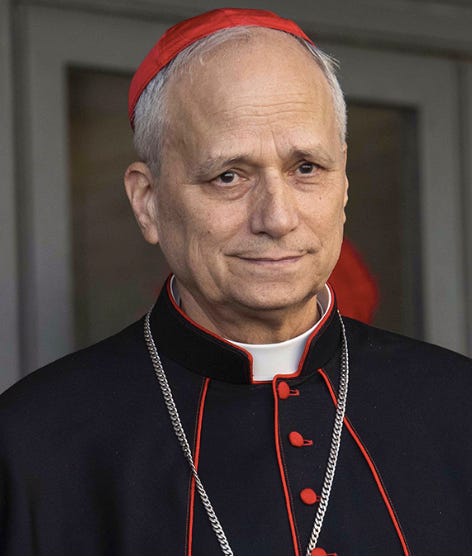Not Your Pope? Still Your Problem
A concise overview of how the Catholic Church just shaped the future of reproductive rights.
The new pope is from Chicago. Cardinal Robert Prevost - now Pope Leo - made history today as the first American pope. His selection is a big deal because the pope has a massive influence on Catholic doctrine worldwide, especially on issues like abortion. The Catholic Church has long maintained an unwavering stance against abortion, teaching that life is sacred from conception and that abortion is morally wrong, no matter the circumstances. Will the new pope tow the party line or enter the 21st century of reproductive rights? Let’s dive in…
Sacred Life or Sacred Rhetoric?
The Church teaches that life is sacred from conception to natural death, and abortion is considered a grave moral evil. Pope Francis upheld this doctrine, but rather than focusing on abortion, he made space for compassion. He allowed priests (not just bishops) to absolve the “sin” of abortion in confession, softening the tone without changing the Church’s official position. His efforts to shift the church’s language was an attempt to address a disconnect between Church leadership and its members, at a time when 6 / 10 U.S. Catholics support abortion rights in at least some circumstances.
From Doctrine to Policy
The Church’s teachings continue to sway laws and policies, often pushing to restrict or outright ban abortion. But there’s a growing divide within the Catholic community. Many Catholics reconcile their faith with support for abortion rights, viewing it as a matter of personal conscience or a broader commitment to social justice. Reproductive justice advocates, including progressive Catholics, argue for a more nuanced approach, one that values women’s dignity, autonomy, and comprehensive care – which already aligns with many of the Church’s existing social teachings.
The American Shaping the Church’s Abortion Stance
Now, with Pope Leo at the helm, all eyes are on how his views on abortion might shape the future of global abortion policy. As former head of the Congregation for Bishops, Robert Prevost has always upheld the traditional anti-abortion stance. His leadership could reinforce the Vatican’s firm position. However, like Pope Francis, Prevost has recognized the importance of showing compassion for women facing tough decisions around abortion. What will his papacy bring? We’ll be watching closely and sharing out here on Substack to keep you #ReproReady.
How This Affects You
Whether or not you're Catholic, the selection of a new pope has ripple effects that can influence abortion access, public policy, and cultural narratives around reproductive rights. Here’s how:
Global Influence on Policy: The Catholic Church actively shapes abortion laws in countries across Latin America, Africa, and even parts of Europe—often leading to bans or severe restrictions.
Impact on U.S. Politics: In the U.S., Catholic doctrine often guides the positions of lawmakers and judges. Think: the anti-abortion talking points repeated in Congress and cited in court rulings.
Fuel for the Anti-Abortion Movement: U.S.-based anti-abortion groups frequently cite the Church’s teachings to justify policy pushes, legal battles, and disinformation campaigns.
Shifts in Tone Can Shift Culture: Even without changing doctrine, a new pope’s tone and priorities influence how people talk about abortion—from the pulpit to the public square. Compassionate messaging (or the lack of it) can either reduce or reinforce stigma.
Catholics Are Not a Monolith: Most U.S. Catholics support legal abortion in some or all cases. Understanding that divide helps activists find common ground with people of faith and push back against the idea that “religion = anti-choice.”
Pope Leo’s Priorities Could Shape the Future: As the first American pope, Leo may take a different approach than his predecessors. His choices—who he promotes, what issues he speaks out on, where he applies pressure—will matter for years to come.
What You Can Do
Feeling moved by this issue? Here are some meaningful steps you take to level up your activism?
Engage in interfaith conversations with groups - like Interfaith Voices for Reproductive Justice and Catholics for Choice - about how faith communities can evolve their stance on reproductive rights, especially in Catholic-majority regions.
Advocate for reproductive justice by pushing for comprehensive healthcare and social support, aligning with Catholic principles of compassion.
Share resources with your clergy on how to provide judgment-free emotional and spiritual support during times of reproductive crisis.
Want to know more about how faith groups are engaging with reproductive rights, or how activists are organizing in Catholic-majority regions? Comment your questions below!
Find us @GEMMA_Talks, @evexplains, @pariphrased








He's MY Pope and I ain't even Catholic!!
Look at those kind eyes. I truly wish him strength and patience as he deals with the evil in the world